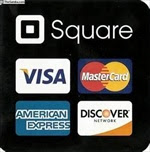Hacks and data breaches are a dime a dozen. Still, you'd be surprised by how many people make critical mistakes when creating their passwords.
Whether your passwords are too short, too simple or have been used time and time again, these mistakes can put your private information at risk. So, here are three easy ways to create solid passwords you can still remember.
1. Unique phrases
You've probably heard that good passwords require at least eight to nine characters, a few capital letters, random symbols, etc. But a recent study conducted by Carnegie Mellon University proved there are other options.Unique passphrases, such as "ilovefreshsashimituna," were found to be just as effective. In fact, these passphrases can be more effective since they don't contain confusing numbers, symbols or long strings of odd letters.
The key to creating a secure passphrase is to make it as long as possible, while still remaining meaningful. The ideal passphrase should be 16-64 characters long, and should say something you find funny, sentimental or has another form of personal meaning. Click here for more tips on creating passphrases that are completely secure.
2. Add deliberate spelling mistakes
One trick that makes passphrases even more secure is to use deliberate spelling mistakes.Let's go back to the previous example. This could be written a few different ways, or you could replace some of the letters with numbers that read as the same phrase. Take a look at these examples:
- iluvfreshsashimituna
- il0vefre5ha5himituna
- 1lovefreshash1m1tuna
3. Use alternatives to passwords instead
Google has been promising us all that passwords will soon be a thing of the past. With a development named Project Abacus, the tech giant aims to use your entire life as the password. In other words, using your smartphone's sensors and its services, Google wants to keep track of everything you do at all times and assign a "trust score."For Project Abacus to work, Google would need to track your schedule, your favorite places to eat, how fast you normally walk, the sound of your voice, what types of sites you visit and everything else. As long as you do what you normally do, your trust score is high and you can log into your phone and from there into other accounts.
If there's a sudden change in your behavior, such as going to an atypical part of the city and walking around with an unusual gait, your trust score goes down and Google will lock everything up until you verify that you're actually you.
What's the downside? Well, Project Abacus will only work as long as you keep to your usual patterns. So, if you got injured and walked funny or had to use your off-hand, you might find yourself locked out.
For now, we don't have to worry about that. Project Abacus is still in development but is expected to make password-free logins possible by the end of 2016.
How does your password stack up? Before you start using a new password for any of your accounts, confirm that it's secure by using a password strength checker. Our sponsor, Kaspersky Lab, offers a secure password check that's free to use. Click here and see if your password is strong enough to serve as your first line of defense against online threats.
















